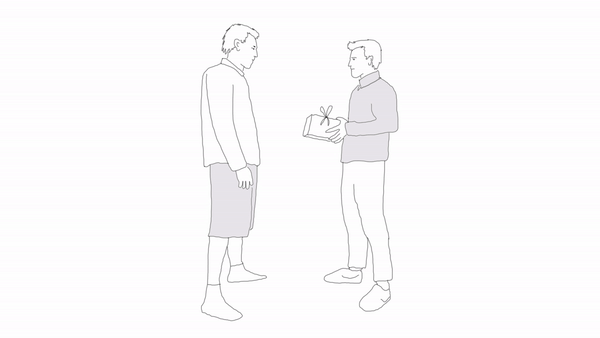The Why #17: Why do groups of adults argue over who gets to pay the bill?
By Dan Monheit 16.4.21
Question submitted by Gerard, Cremorne
Because we’re petty and irrational. But you already knew that Gerard, didn’t you?
It doesn’t seem to matter if we’re out with childhood friends, the extended family or our celebrity crush (Hi Dan Ariely 👋🏻 ), when it comes time to pay the bill, everyone’s a bloody hero. Odd right, especially considering how much we also seem to love the idea of ‘free!’? 🤔
Insisting we settle the tab ourselves, despite being chronically underpaid (isn’t everybody?), chronically overmortgaged (isn’t everybody?) and chronically in the presence of some other big shot who’s also insisting on paying is first class lunacy. Sure, ego has a part to play, but if you’re reading this newsletter, you know there’s got to be more…
And there is. So follow me into the darkness Gerard, because when it comes to human behaviour not making any logical, rational or economic sense, feeling bad about spending $0 on a delicious meal is about as good as it gets.
Reciprocity Bias
What we’re up against here is the Reciprocity Bias, our deep-seated need to reciprocate the acts of good faith others have shown to us. We have an innate desire to return favours, pay back debts and treat others well who have done the same to us. Failing to do so leaves us feeling indebted, which for most of us, is a strangely uncomfortable sensation.
In 2006, David Strohmetz and his team conducted an experiment in a New York City restaurant, seeking out ways to increase the tips paid to wait staff. While all patrons were provided with a great meal, when it was time to pack it up, some groups of diners were given the check, while others were also handed a piece of chocolate in an attempt to sweeten the deal. In an act of reciprocity, those who were given the chocolate tipped almost 20% more than those who received the standalone bill. If the waiter then took the time to walk around the table and offer everyone the chance to choose one more chocolate of their liking, tips increased a further 16%!
None of the diners that night worked in procurement.
If a person goes out of their way to do something nice for us, like letting us choose our favourite chocolate, we feel indebted. Indebtedness has a funny way of turning into discomfort, and a burning urge to be resolved by squaring the ledger. Letting someone else pay for our coffee or meal is essentially signing up for a dose of inner torture, until such time as we can return the favour.
Reciprocity Bias explains why we buy at least one bottle of wine after a cellar door experience, why we give a few dollars to the busker who we’ve just watched perform, or why we love buying the first round on a Friday night. Sure, they’re all nice things to do, but more importantly, they let us avoid the inner dread of ‘owing’.
Reciprocity Bias can be a powerful motivator for consumers, but brands need to tread with caution. For Reciprocity Bias to ‘work’, a brand’s offer must be forthcoming and unexpected, without directly asking for anything in return. Think free samples, bonus add-ons, and complimentary training or workshops. For bonus points, the more personalised the ‘give’ the better. Sending customised offers or gifts, or offering up personal introductions in a B2B sense can all have customers feeling like it might just be time for them to get the next round.
Behaviourally Yours,


